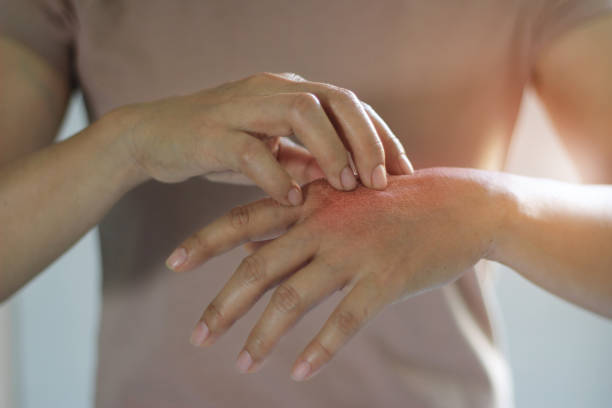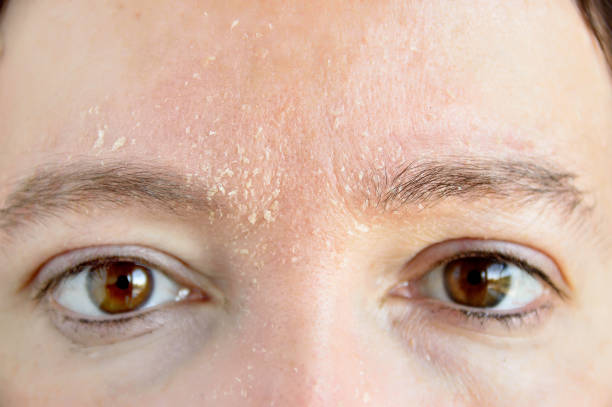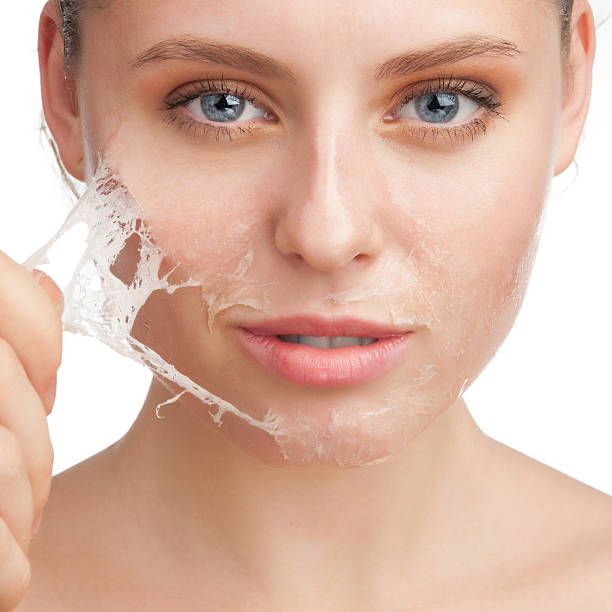Introduction
Dry skin, also known as xerosis, is a common condition that causes discomfort, itching, and sometimes pain due to lack of moisture in the skin. Understanding the causes, types, and effective remedies for dry skin is essential for maintaining healthy skin. In this comprehensive guide, we will explore various aspects of dry skin, offering actionable tips and expert advice.
Understanding the Skin’s Anatomy
Our skin, the body’s largest organ, comprises three main layers: the epidermis, dermis, and subcutaneous tissue. The epidermis provides a protective barrier, while the dermis offers structural support, and the subcutaneous tissue acts as insulation for the body. Hair follicles and sweat glands play crucial roles in regulating skin health, and understanding this anatomy is vital in addressing dry skin issues effectively.

Causes of Dry Skin
Dry skin can be caused by genetics, environment, lifestyle, or health issues such as diabetes or hormonal imbalances. To treat it, we need to identify the cause.
Types of Dry Skin Conditions
- Xerosis: Mild Dry Skin
Xerosis, the most common form of dry skin, often causes itchiness and flakiness. It can be managed with proper skincare routine and lifestyle adjustments.
- Atopic Dermatitis (Eczema): Chronic Inflammation
Atopic dermatitis is a chronic skin condition causing itchy rashes, often starting in childhood and persisting into adulthood.
- Psoriasis: Autoimmune Skin Disorder
Psoriasis leads to the rapid buildup of skin cells, resulting in thick, silvery scales and itchy, dry patches. It’s an autoimmune disease that varies in severity, requiring specialized treatment.
- Ichthyosis: Genetic Disorder
Ichthyosis is a genetic disorder that causes the skin to become thick, dry, and scaly, resembling fish scales. Managing it can be challenging, and it requires continuous and long-term care.

Effects of Dry Skin on Different Body Parts
- Facial Dry Skin: Prevention and Care
Facial dry skin can lead to redness, tightness, and peeling. Using a gentle cleanser, a hydrating moisturizer, and wearing sunscreen daily can prevent and alleviate facial dryness.
- Dry Scalp and Hair: Causes and Treatments
A dry scalp can lead to dandruff and itchiness, affecting hair health. Using a mild, hydrating shampoo and conditioner, along with scalp treatments, can maintain a healthy scalp and hair.
- Dry Skin on Hands and Feet: Cracks and Pain
Dry skin on hands and feet can result in painful cracks. Regular moisturization, wearing gloves, and using specialized foot creams can prevent and heal these cracks.
- Dry Skin on Legs and Arms: Rough Patches
Dry skin on legs and arms can cause rough, uneven patches. Exfoliating regularly and applying rich, creamy lotions can soften the skin and improve its texture.
Common Myths and Misconceptions About Dry Skin
- Myth: Drinking More Water Can Cure Dry Skin
While hydration is essential, dry skin requires external moisturization. There may need to be more than just drinking water alone.
- Myth: Oily Skin Can’t Be Dry
Even oily skin can suffer from dryness. It’s essential to balance the skin’s moisture levels without clogging pores.
- Myth: Moisturizers Can Instantly Solve Dry Skin Problems
Effective moisturizers can help, but consistent skincare habits and identifying underlying causes are crucial for long-term relief.

Dermatologist-Recommended Skincare Regimen
Dermatologists emphasize the importance of a gentle cleansing routine, using soap-free cleansers and lukewarm water. Applying moisturizers immediately after bathing, when the skin is slightly damp, enhances absorption. Exfoliating occasionally removes dead skin cells, and using sunscreen daily protects against UV damage, which can worsen dry skin.
Natural Remedies and DIY Solutions
- Herbal Teas and Infusions
Drinking herbal teas like chamomile or green tea can have antioxidant properties, promoting overall skin health.
- Homemade Body Scrubs
Creating natural scrubs with ingredients like sugar, honey, and coconut oil can exfoliate dead skin cells gently.
- DIY Face Masks
Homemade masks using ingredients like avocado, honey, and yogurt can provide deep hydration, leaving the skin soft and supple.
- Essential Oils
Essential oils such as lavender and rosehip, when diluted with carrier oils, can be massaged into the skin for added moisture and relaxation.
Lifestyle Changes for Managing Dry Skin
- Diet and Nutrition
Consuming foods rich in omega-3 fatty acids, vitamins A and E, and antioxidants supports skin health. Incorporating fish, nuts, fruits, and vegetables can make a significant difference.
- Hydration Habits
Drinking water, herbal teas, and eating water-rich foods helps maintain skin moisture.
- Stress Management
Relaxation techniques like yoga, meditation, or deep breathing prevent hormonal imbalances that cause dry skin due to stress.

Seeking Professional Help and Medical Treatments
Dermatologists play a crucial role in diagnosing the root cause of dry skin. They may prescribe topical treatments like medicated creams or ointments to alleviate symptoms. In severe cases, advanced procedures like laser therapy and chemical peels can help restore skin health. Personalized advice and treatment options from healthcare professionals are essential.
Prevention Strategies for Different Age Groups
Dry Skin in Infants and Children
Using mild baby soaps, applying fragrance-free moisturizers, and maintaining a balanced diet are essential for infant and child skincare.
Dry Skin in Adolescents
Adolescents should avoid harsh acne treatments, opt for gentle cleansers, and wear sunscreen daily to protect their skin from damage.
Dry Skin in Adults and Seniors
Aging skin requires extra care. Regular moisturization, exfoliation, and wearing protective clothing can prevent age-related dryness and maintain skin elasticity.
Skincare Tips for All Ages
- Choosing the Right Skincare Products
Opt for products free of alcohol, fragrances, and harsh chemicals. When searching for skincare products, it is essential to look for ingredients that are known for their hydrating properties, such as hyaluronic acid, glycerin, and ceramides. These ingredients can help to keep your skin moisturized and looking healthy.
- Protecting Skin During Seasons
Adjust skincare routines according to seasons. Use richer, creamier moisturizers in winter and lighter lotions in summer to accommodate changing humidity levels.
- Regular Skin Checks
Perform regular skin checks to monitor any changes or abnormalities. Consult a dermatologist if you notice unusual moles, growths, or persistent dry patches.

Conclusion: Embracing Healthy Skin Habits for Life
In conclusion, understanding the underlying causes of dry skin and adopting a holistic approach to skincare is paramount for maintaining healthy, hydrated skin. By debunking myths, following dermatologist-recommended regimens, incorporating natural remedies, and seeking professional help when needed, individuals can achieve long-lasting relief from dry_skin issues. Healthy skin reflects overall well-being. Proper care yields soft, supple skin at any age.
FAQ About Dry Skin
Q1: Can dry skin be completely cured?
A1: Although dry_skin cannot always be completely cured, it can be effectively managed through proper skin care and lifestyle adjustments, as well as medical treatments in some cases.
Q2: Are there specific foods that worsen dry skin?
A2: Unhealthy foods like those containing caffeine, sugar, and processed carbohydrates can cause skin inflammation, worsening dry_skin. A diet rich in fruits, vegetables, and healthy fats is good for skin.
Q3: Can dry skin be a sign of a more serious health condition?
A3: Dry_skin can indicate underlying health conditions like eczema, psoriasis, or hormonal imbalances, so consulting a healthcare professional is crucial.
Q4: How often should I moisturize my skin?
A4: It’s advisable to moisturize your skin at least twice a day – once in the morning and once before bedtime. Applying moisturizer immediately after bathing is particularly beneficial as it locks in the skin’s natural moisture.
Q5: Can stress worsen dry skin?
A5: Yes, stress can trigger hormonal imbalances that may lead to dry_skin. Practicing stress-relief techniques such as meditation, yoga, or hobbies can help manage stress and improve overall skin health.
Q6: Is it possible for dry skin to worsen with age?
A6: Yes, aging skin tends to produce fewer natural oils, making it more susceptible to dryness. Additionally, factors such as hormonal changes and decreased collagen production can contribute to increased dry_skin in older adults. It’s crucial to adjust skincare routines as one age and incorporate products specifically designed for mature skin.
Q7: Can certain medications cause or exacerbate dry skin?
A7: Yes, some medications, such as diuretics, antihistamines, and acne treatments containing benzoyl peroxide, can lead to dry_skin as a side effect. If you suspect that your medication is contributing to dry_skin, consult your healthcare provider. They may adjust your dosage or recommend suitable skin care products to manage the condition.
Q8: Are there specific fabrics that can worsen dry skin irritation?
A8: Fabrics like wool and rough synthetic materials can aggravate dry_skin, causing itchiness and discomfort. Opting for soft, breathable fabrics like cotton can reduce irritation. Additionally, washing clothes with mild, fragrance-free detergents and avoiding fabric softeners can further prevent skin irritation.
Q9: Can dry skin lead to other skin problems, such as eczema or infections?
A9: Untreated dry_skin can cause damage to the skin barrier, which can lead to various skin problems. Eczema, a common condition that causes intense itching and inflammation and often occurs with dry_skin, can also lead to bacterial infections through cracks in the skin. To avoid such complications, it is essential to maintain proper skincare routines and moisturize your skin regularly.
Q10: How can I protect my skin during winter months when it tends to get excessively dry?
A10: Winter air is dry and can cause skin dehydration. Protect your skin by using a humidifier indoors and wearing protective clothing. Use thicker moisturizers and avoid hot showers.
Read also.. Hyperpigmentation: A Comprehensive Guide to Understanding, Preventing, and Treating Hyperpigmentation

